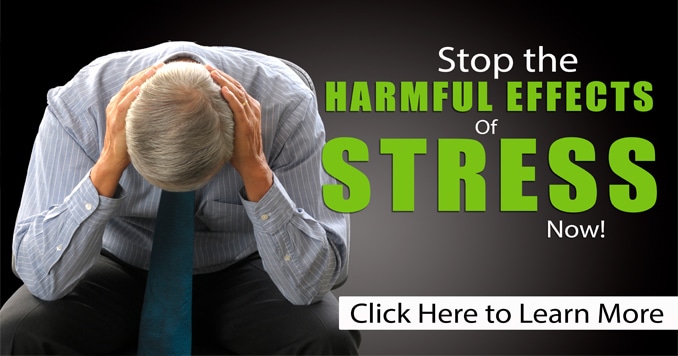
Stress can cause your body to feel tense and anxious, which you might recognize through physical sensations like butterflies in your stomach or an inability to relax your muscles. This article will explore common silent signals that indicate stress to help you identify when you need relief from its effects.
Probably a little, or unfortunately, A LOT! If so, you’re not alone.
Stress can result from a myriad of situations. The word stress has recently become very common – a buzzword of sorts. But, what is stress?!! What is this word we hear of CONSTANTLY and dread? Is stress good, bad, or a bit of both? How do you know that stress or something else is affecting you? Stress is a condition that arises based on demanding or adverse circumstances. It’s a tension that could affect a person emotionally and possibly mentally.
Yes, stress can KNOCK YOU DOWN, my friend! Also, when a person is stressed, you could be able to see or feel it. However, there could be SILENT SIGNALS related to stress. Stress, especially in high doses, can be very bad. So, you DO want to pay attention to your stress levels. You don’t want to ignore stress so that it becomes much worse! Did you know that stress has been linked to various ailments? Stress has been associated with heart disease, asthma, Alzheimer’s disease, gastrointestinal problems, depression and anxiety, headaches, obesity, diabetes, accelerated aging and premature death [1]. Thus, as invisible or readily apparent as stress may seem, it’s something that you should take SERIOUSLY. As a result, it’s also particularly important to know the signals a person could get or feel when stress is present, even the SILENT signals.
Stress Signals Could Be Silent
Some signals you may feel or get when stressed could be SILENT. Yes, SILENT! These silent stress signals could creep up on you before you know it BOOM!! You are massively STRESSED! What can you do? First, you need to be aware of stress signals so that you can take action to either reduce the stress or STOP it from getting much worse. Of course, we all know that the preferable option is to get rid of the stress entirely and to know silent signals that indicate you’re stressed is one good way to begin tackling stress.
Stress-induced silent signals also connect to physical changes in your body. As you get stressed, you may begin to show silent signals that physically relate to your body. How does knowing what these silent signals help you? So, let’s look at some of these silent stress signals. Here are 7 to be aware of:
1. Yes, pimples, bumps, spots, and more.
When a person stresses, acne may surface on the skin for no other apparent reason. In some cases, the more stressed a person is, the more they will break out in pimples or acne. Indeed, stress can AGGRAVATE acne symptoms [2]. This acne may occur in different parts of the body. However, stress-related acne is more likely to occur on the face, neck, or chest. Why does this silent signal surface? Well, it has to do with inflammation. Stress can lead to inflammation, and this, in turn, can lead to acne.
2. Do you notice headaches creeping up and getting worse?
While headaches can occur for several reasons, some are particularly related to stress. These types of headaches are referred to as stress headaches. Stress headaches may only occur at specific times of the day or week, such as in the evenings or on the weekends when the body is trying to recover from the stress triggers. You may not experience headaches during working hours or high-pressure situations while adrenalin is pumping through your veins, but rather these types of headaches arise when you finally get an opportunity to relax. Some people describe these headaches as MIGRAINES. What can you do to help? Getting enough rest is a good start. You also NEED to EAT PROPERLY!
3. Craving sugar, anyone?
Another silent signal that signifies the presence of stress is cravings for anything sweet. Have you developed a SWEET TOOTH lately? Sometimes, we think it’s easier to drown the pain with food, especially sweet treats like cakes, pastries, candies, and chocolate. If you are working late hours or many hours a day, there could be a chance that you’re not eating properly. Sugary foods mask the stress, pain, anxiety, long hours, and other similar scenarios. Food cravings can arise in response to stress [3]. If a person feels stressed, they may eat LOTS of sugary foods! NOT good!! So, if you notice that you are eating lots of sugary foods, this could be a silent signal that you’re stressed.
4. Here come the allergies!
Some people notice an onset of allergies when stress occurs. As people get stressed, they may begin to sneeze or have itchy skin and eyes. If it’s not allergy season, it may be easier to notice this occurrence. Yes, stress could be a trigger for allergic reactions. There may be cases where stress worsens allergies that a person already has. So, if you are itching, coughing, sneezing, and have more watery eyes than is normal, you could be under the influence of stress. Yes, STRESS has been tied to worsening allergy symptoms [4].
5. Cramps and Stomach Aches.
The body is connected in different ways, and the gastrointestinal tract can be affected when a person is stressed. Sudden pain in your tummy? Cramps and a pinching sensation? It may be a STRESS! Stress could also make you nauseous and possibly constipated. Some people may also experience vomiting and diarrhea. There are ways to handle cramps and stomach pain that are associated with stress. Perhaps you need to clear your head and get some air. Yes, the activity could help. Start SLOW and get moving a little at a time. Also, eat healthy foods that can help soothe your stomach and provide you with the ability to fight inflammation.
6. Nervous Twitching.
This could encompass several different reactions. Some people may nervously jerk at their clothes when stressed, while others find that their eyelids twitch constantly or intermittently when they are stressed. Hence, if you notice some nervous movement, watch to see if this is a silent signal that you’re stressed. Such movement is typically involuntary and may be called a muscle spasm. You CAN’T help yourself when this signal begins to occur. As long as STRESS is present, nervous twitching or similar spasms occur. As stress levels decline, you may notice that the spasms reduce or become less jerky or forceful.
7. Losing your hair!
No, this DOES NOT sound pretty, but stress can be related to hair loss [5]. Hair loss is another silent signal that can be associated with stressful situations. Hormones related to stress could affect hair follicles, and when you’re stressed, you may begin to notice more hair in your hair brush, on the shower floor, or your shirt. The more stressed a person is, the more hair may fall out.
There could be ways to relieve these silent stress-related signals, and it is important to seek medical attention if more serious occurrences happen. For instance, you may need to contact a doctor if severe muscle spasms occur. Stress can affect the mind, and, in turn, the mind can affect the body. So, when you get stressed, physical expressions of this stress can begin to manifest. You’re NOT alone! Lots of people get these silent signals when they are stressed.
If you want something to help you with stress, check out 14-Day Stress Reduction.
Rick Kaselj, MS





